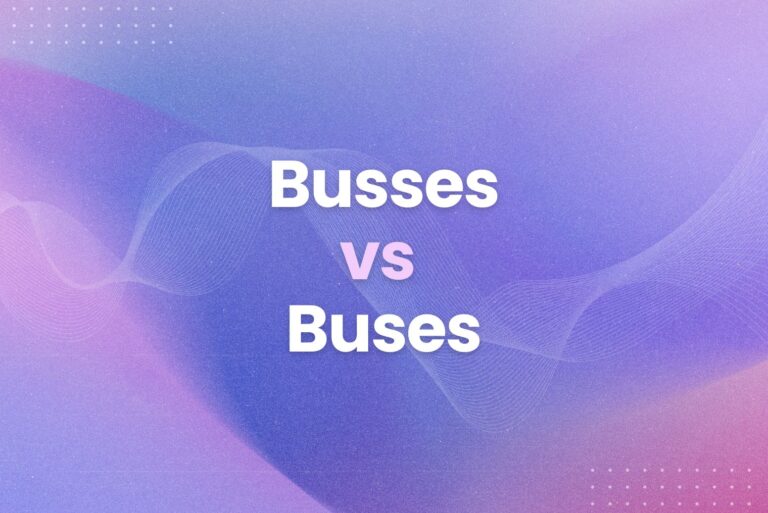Incident vs Accident: Key Differences With Examples
Have you ever accidentally called an “incident” an “accident?” We’ve all been there. These two words seem interchangeable, but they actually have distinct meanings. Using the wrong one can lead to confusion, especially in fields like law and insurance.
This post clears up the confusion between incident vs accident. We’ll explore:
- Definitions of both terms
- Key differences with examples
- When to use each word
- Common usage errors to avoid
- Tips for choosing the right word every time
Let’s get started.
Incident vs. Accident: What Do They Really Mean?
Let’s start with the basics. Here’s what each word means:
- Incident: An unexpected or unplanned event. It may cause damage, injury, or disruption. Think of a minor car fender bender. Or a slip and fall.
Accident: An unexpected event. It does cause damage, injury, or disruption. Imagine a multi-car pileup. Or a fire.
The key difference? An accident always results in some harm, while an incident might not.
Consider it like this: an incident is a near miss, while an accident is a direct hit.
Key Differences with Examples
Let’s break down the key differences between incident vs accident with some real-world examples:
Outcome:
- Incident: May or may not cause harm.
- Accident: Always causes harm (injury, damage, or loss).
Severity:
- Incident: Ranges from minor to serious. (Serious ones often become accidents).
- Accident: Typically more severe with a bigger impact.
Examples:
- Incident: A near miss in traffic, a power outage, a computer glitch.
- Accident: A car crash, a workplace injury, a slip and fall with a broken leg.
Imagine:
- You’re walking down the street and trip on a loose paving stone, but don’t fall. That’s an incident.
- If you trip, fall, and break your arm, that’s an accident.
See? The difference lies in the outcome.
Pro Tip: In formal writing or professional settings, it’s generally best to use “incident” unless you’re sure that harm occurred. This helps you stay accurate and avoid making assumptions.
Choose the Right Word
Let’s talk about how to use these words correctly. Here’s a simple guide:
Use “incident” when:
- Referring to an event that might have caused harm, but you’re not sure.
- “There was an incident at the factory today, but luckily no one was injured.”
- Describing a near miss or a close call.
- “The pilot reported an incident where another plane flew too close.”
- Talking about a minor event that caused disruption but no significant harm.
- “Due to a technical incident, the website was down for a few hours.”
Use “accident” when:
- Referring to an event that definitely resulted in harm.
- “The car accident caused major traffic delays on the highway.”
- Describing an event with significant consequences. For instance, injury or property damage.
- “The workplace accident led to new safety regulations being implemented.”
- Talking about something that was clearly unintentional and resulted in a negative outcome.
- “He spilled coffee on his laptop by accident.”
Need help choosing the right word? Arvin Chat can be your guide. This AI-powered browser extension helps you write with clarity and confidence.
Simply highlight the word you’re unsure about. Arvin will provide instant feedback and suggestions. In other words, it’s like having a grammar expert by your side 24/7. Consequently, you can be confident in your word choices, whether using “incident” or “accident.”

Common Errors to Avoid
Even with the best intentions, it’s easy to slip up and use “incident” and “accident” incorrectly. Here are some common errors to watch out for:
- Using “accident” for minor incidents.
- Not every unplanned event is an accident. If no harm occurred, stick with “incident.”
- Incorrect: “I had a little accident while cooking; I spilled some flour.”
- Correct: “I had a little incident while cooking; I spilled some flour.”
- Not every unplanned event is an accident. If no harm occurred, stick with “incident.”
- Using “incident” for serious events with clear harm.
- When there’s definite damage or injury, “accident” is the more accurate term.
- Incorrect: “The incident at the construction site resulted in three workers being hospitalized.”
- Correct: “The accident at the construction site resulted in three workers being hospitalized.”
- When there’s definite damage or injury, “accident” is the more accurate term.
- Overusing “accident” in formal writing.
- In professional writing, use “incident.” Reports and legal documents often prefer it. Only use “accident” when describing an event with confirmed harm.
You can ensure your writing is clear, accurate, and professional by being mindful of these common errors.
Tips for Choosing the Right Word
Want to master the incident vs accident dilemma once and for all? Here are some tips to help you choose the right word every time:
- Firstly, consider the outcome. Did the event result in harm, damage, or injury? If yes, use “accident.” If not, or if you’re unsure, use “incident.”
- Also, think about the severity. Minor events or near misses are usually “incidents.” Serious events with significant consequences are typically “accidents.”
- Pay attention to context. In formal writing, lean towards “incident” unless you’re describing a specific accident.
- Lastly, when in doubt, use “incident.” It’s generally better to err on the side of caution and use “incident” if you’re unsure.
Bonus Tip: Use Arvin Chat to double-check your word choice. This handy browser extension helps you avoid embarrassing mistakes. It ensures your writing is always on point. Just highlight the word for instant feedback.
Nail the Difference Between “Incident” vs. “Accident”
Now you know the difference between “incident” and “accident.” Essentially, the key is to consider the outcome and severity of the event. Therefore, with a bit of practice, you’ll be using these words correctly in no time
Key takeaways
- Firstly, an incident is an unplanned event that may cause harm.
- Secondly, an accident is an unplanned event that does cause harm.
- Lastly, in formal writing, it’s generally safer to use “incident.”
Write with Confidence Using Arvin Chat
Want to make sure your writing is always clear and error-free? Arvin Chat can help. This AI-powered browser extension provides instant grammar and feedback for writing on any website. So, whether you’re writing an email, a report, or even a casual social media post. Arvin can help you choose the right words and avoid embarrassing mistakes.
FAQs
In short, the main difference lies in the outcome. An incident is an unplanned event that may cause harm, but doesn’t always. In contrast, an accident always results in some form of harm, such as injury, damage, or loss. For instance, a near miss in traffic is an incident, while a car crash is an accident.
There are many examples of incidents. For example, a power outage, a computer glitch, or a slip and fall where no one gets hurt are all incidents. Similarly, a minor argument or a miscommunication could also be considered an incident.
To clarify, an incident is any unplanned event that disrupts normal operations or has the potential to cause harm. However, it’s important to remember that an incident doesn’t always result in actual harm.
Firstly, an incident or accident report is a document that records the details of an unplanned event. Secondly, this report typically includes information such as the date, time, location, and description of the event. Any injuries, damages, or witnesses are also included.
Moreover, incident and accident reports are often used for legal, insurance, or workplace safety purposes. Therefore, it’s crucial to be accurate and objective when writing these reports.





